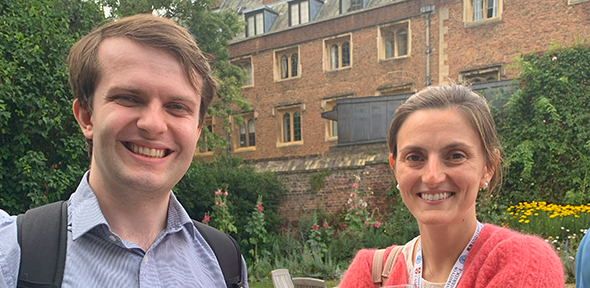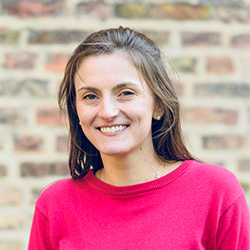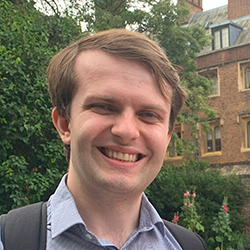
Submitted by Irena Rao on Fri, 14/07/2023 - 16:32
We are delighted to announce that three junior group leaders will join the Institute in the next year. After a successful recruitment round in May 2023, we have been able to offer positions to three researchers with diverse interests who are keen to tackle the challenges of early detection.
Dr Caroline Watson
Caroline obtained her PhD in 2022 with a thesis titled 'The evolutionary dynamics of clonal haematopoiesis and its progression to acute myeloid leukaemia', for which she was delighted to be awarded a Milo Keynes PhD thesis prize from the University of Cambridge.
In 2023, she was awarded a Wellcome Early Career Award and was appointed as a Junior Group leader at the Early Cancer Institute. Caroline's group is focused on using longitudinal state-of-the-art multi-omic approaches to gain a better understanding of the factors that affect progression of ‘pre-leukaemic’ conditions to leukaemia, with the goal of developing therapeutic strategies that may ultimately prevent the development of leukaemia.
Caroline also work as an Honorary Haematology Consultant at Addenbrooke’s Hospital, where she has been involved in the setup of the Cambridge Clonal Haematopoiesis clinic, a national referral clinic for high-risk clonal haematopoiesis.
Find out more about Caroline on her Profile Page.
Dr Alex Frankell
Alex is looking forward to returning to Cambridge to start a new chapter in his professional life. He will start his new role on 1st October 2023.
Alex graduated in Cell Biology from the University of Durham in 2014. He then went on to complete his doctoral training in Rebecca Fitzgerald’s lab at the MRC Cancer Unit (now Early Cancer Institute).
Since 2019 his postdoctoral research in Charles Swanton’s lab at the Francis Crick Institute has focused on understanding how cancers evolve, using genetic mutations to mark sub-populations of tumour cells. Recently, as part of the TRACERx project in London, Alex studied how DNA released by lung tumours into the bloodstream can be used for non-invasive tracking of cancer evolution, for example during therapy.
In the latter half of 2023, Alex will return to the Cambridge as a Junior Group Leader in the Early Cancer Institute. His new lab will develop further technologies to sensitively detect and characterise tumours, as well as pre-cancerous cells, using minimally-invasive samples, which include: blood plasma, urine, saliva, cerebral spinal fluid, cervical smears, cells from the Cytosponge oesophageal diagnostic device and others. In particular, Alex is investigating methods to track chromosomal instability in such samples. These sampling strategies share technical challenges, such as contamination of DNA from normal cells, and hence are currently underutilised. However, by leveraging high sensitivity technologies, his lab will aim to unlock their potential for unbiased sampling and longitudinal monitoring to increase our understanding of cancer development and progression and form the basis of biomarkers for pre-malignant risk prediction, early cancer diagnosis and detection of treatment resistance.
Our third junior group leader will be taking up their postition in the latter half of 2024, and we look forward to introducing them then.


